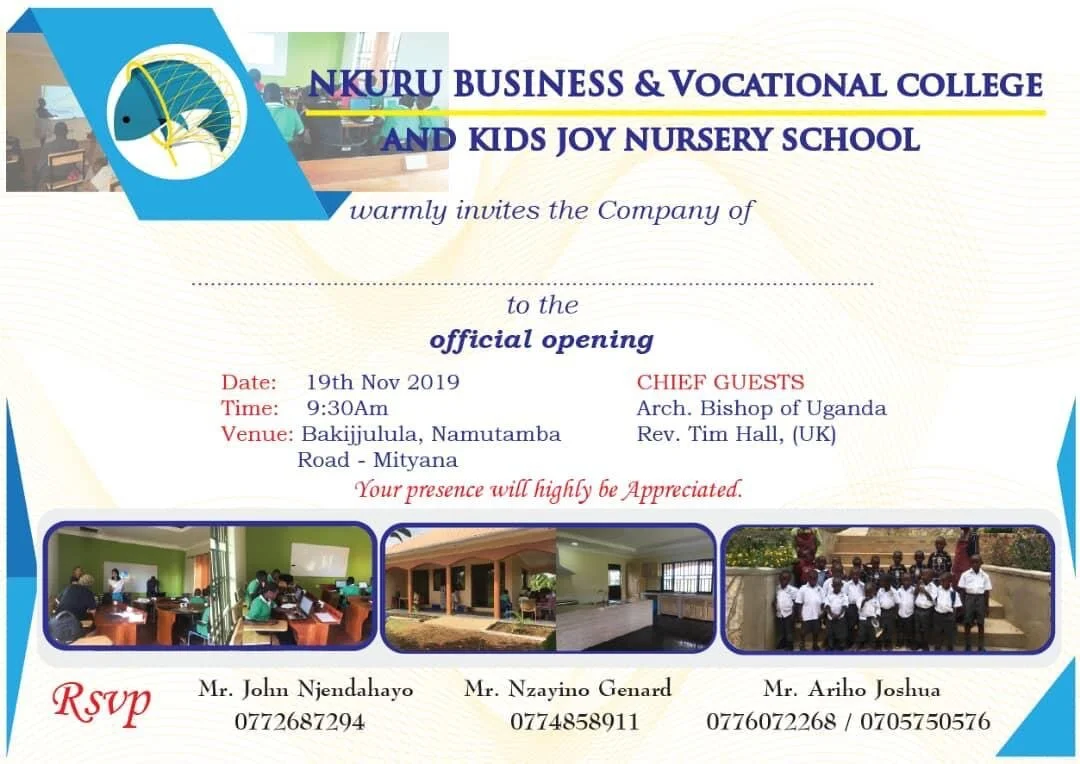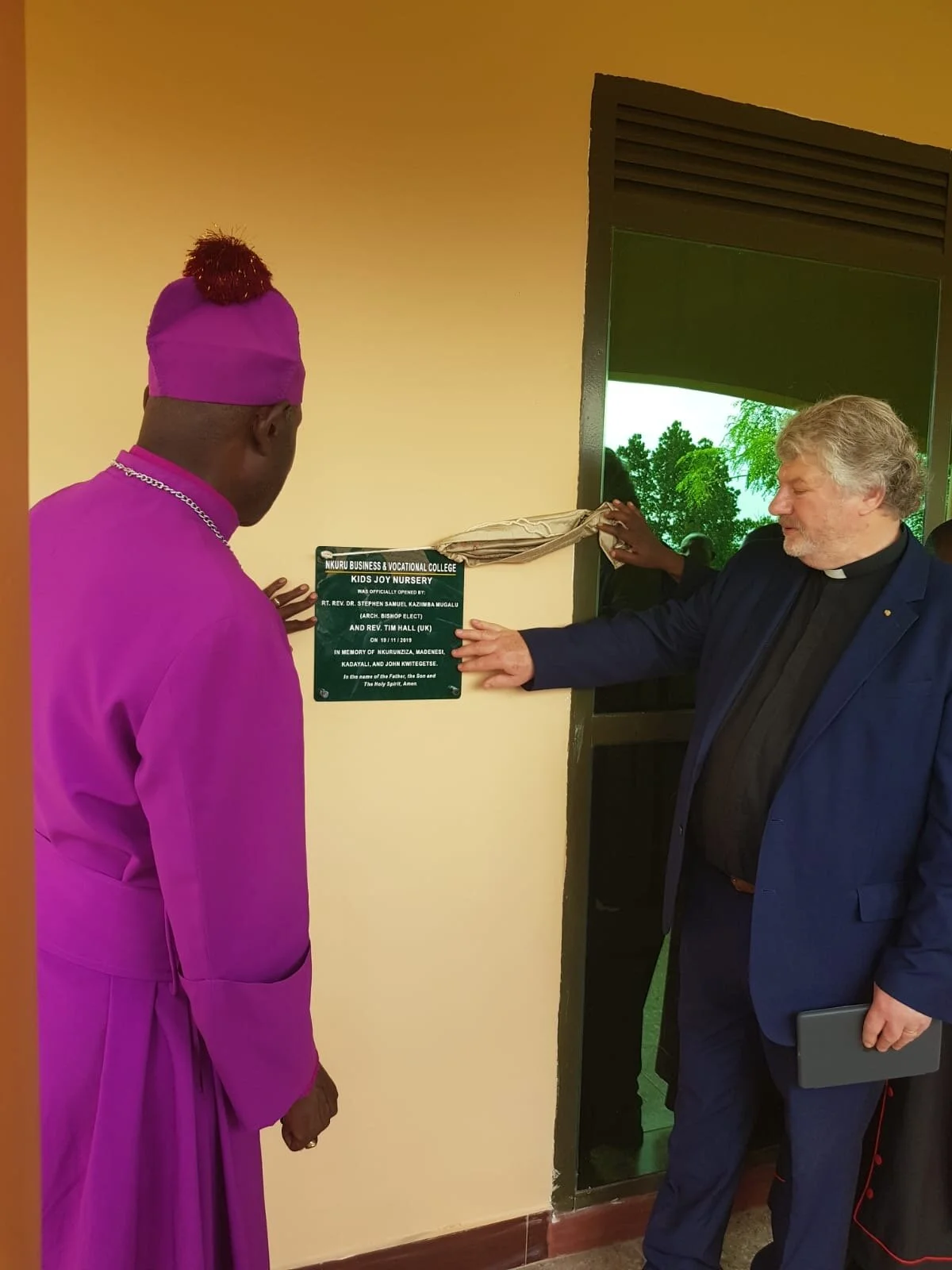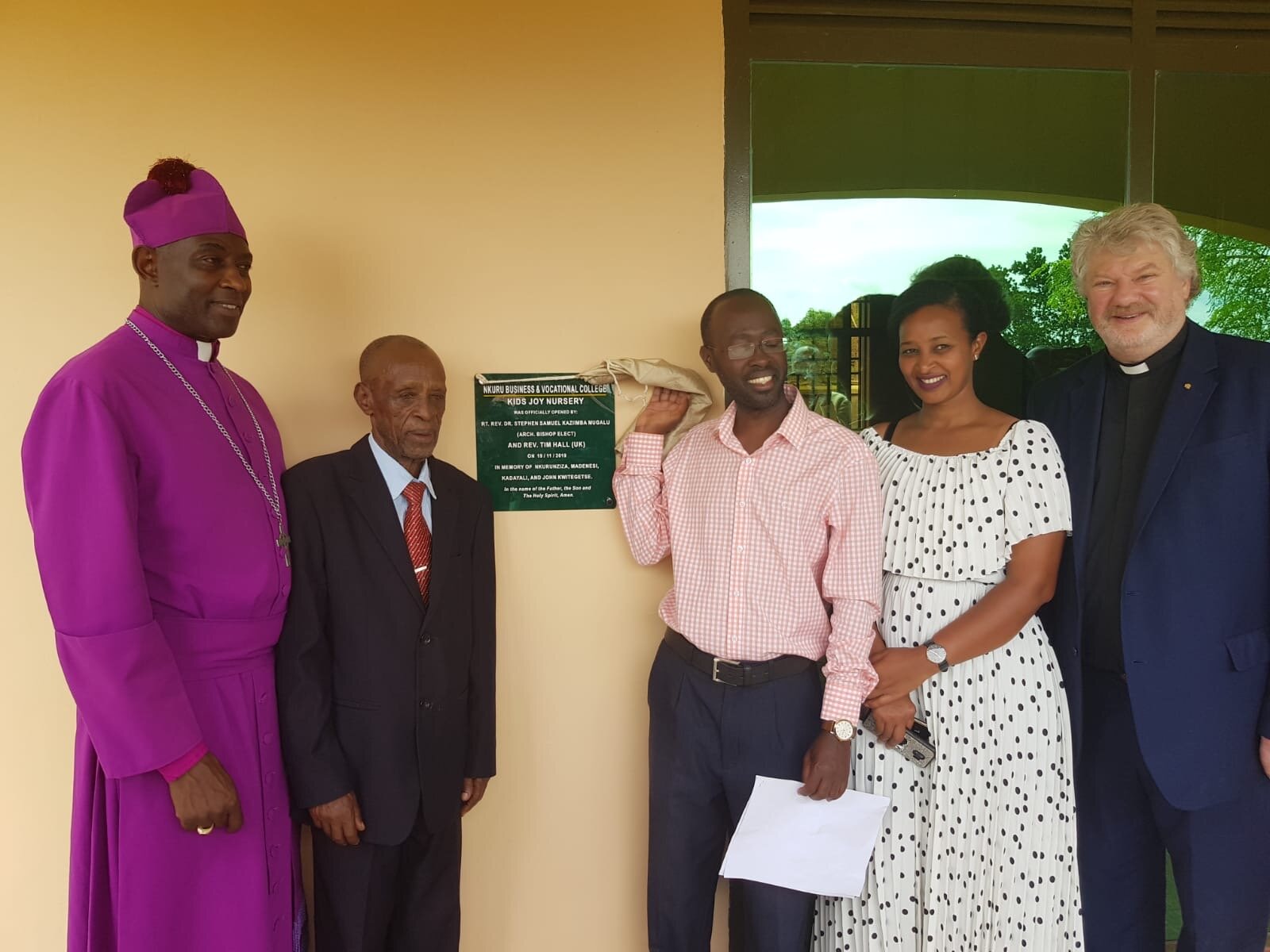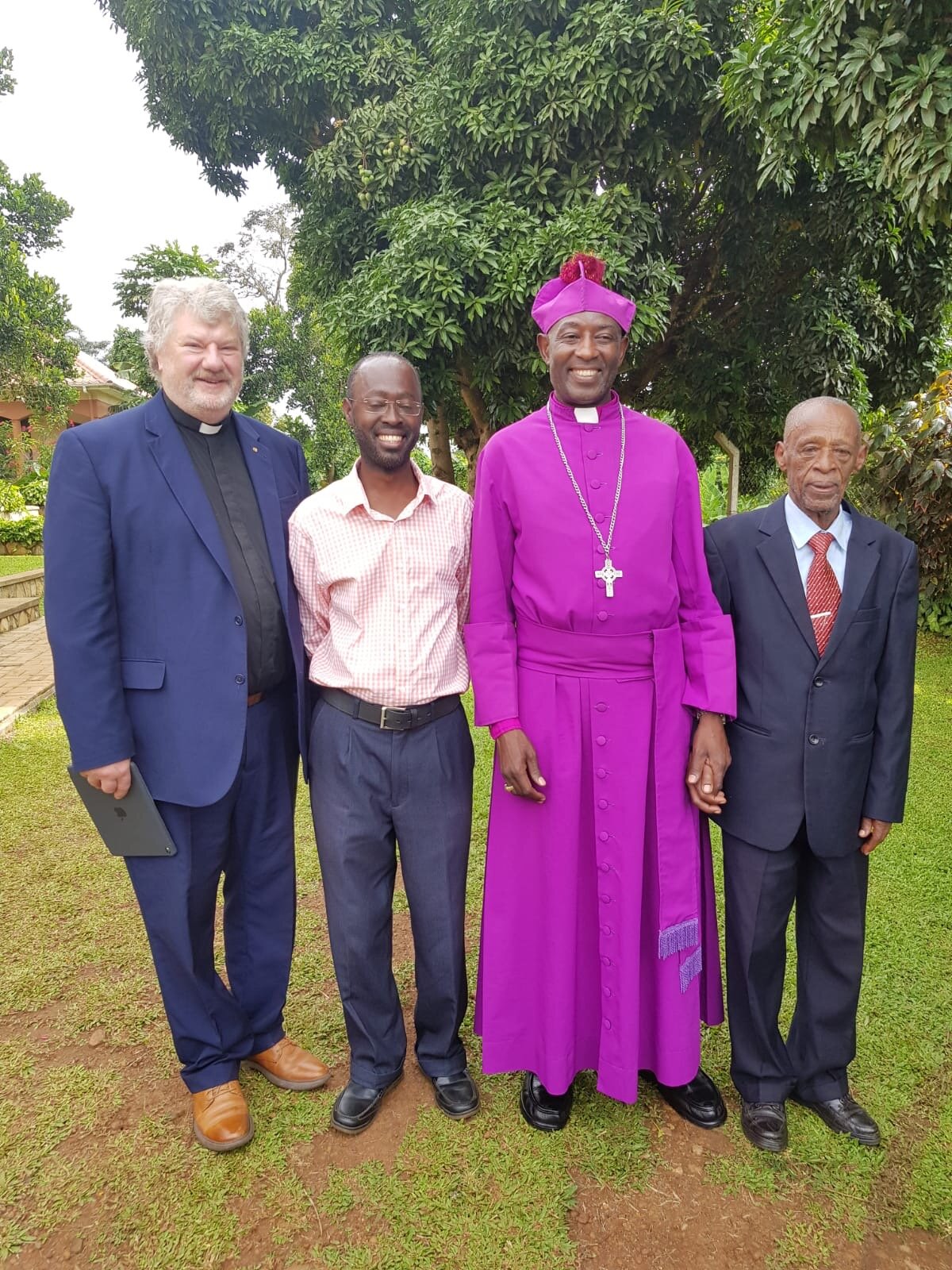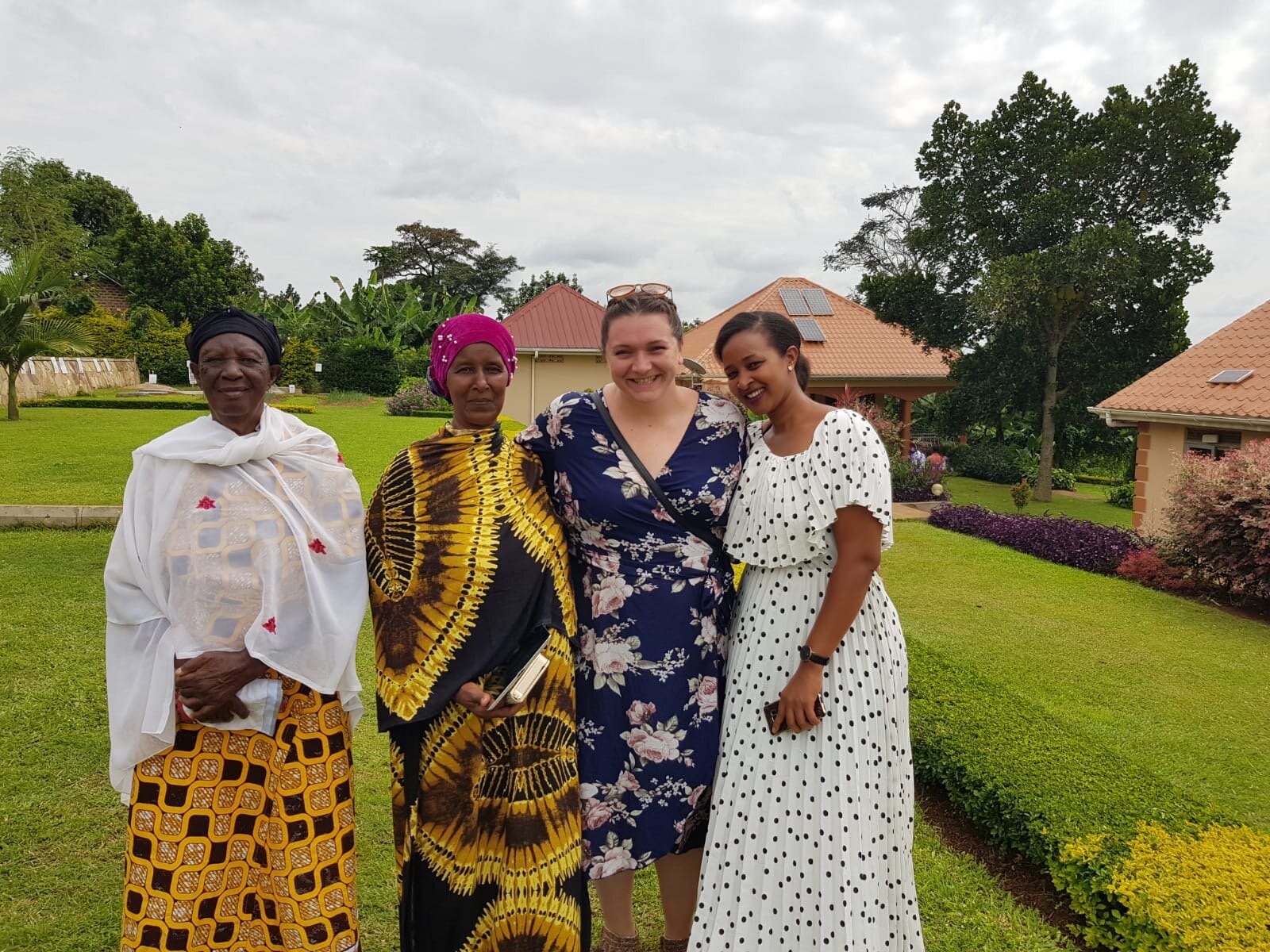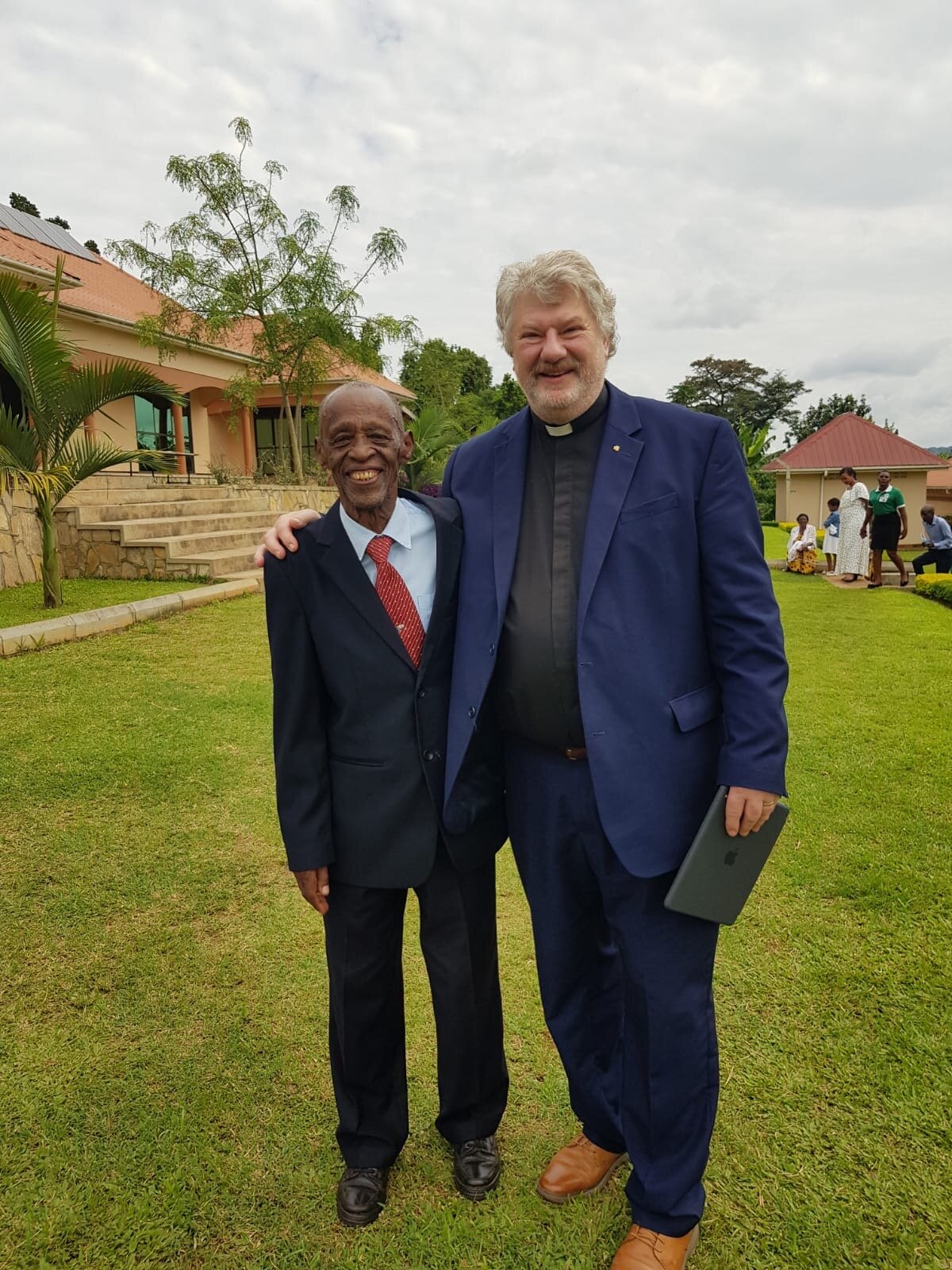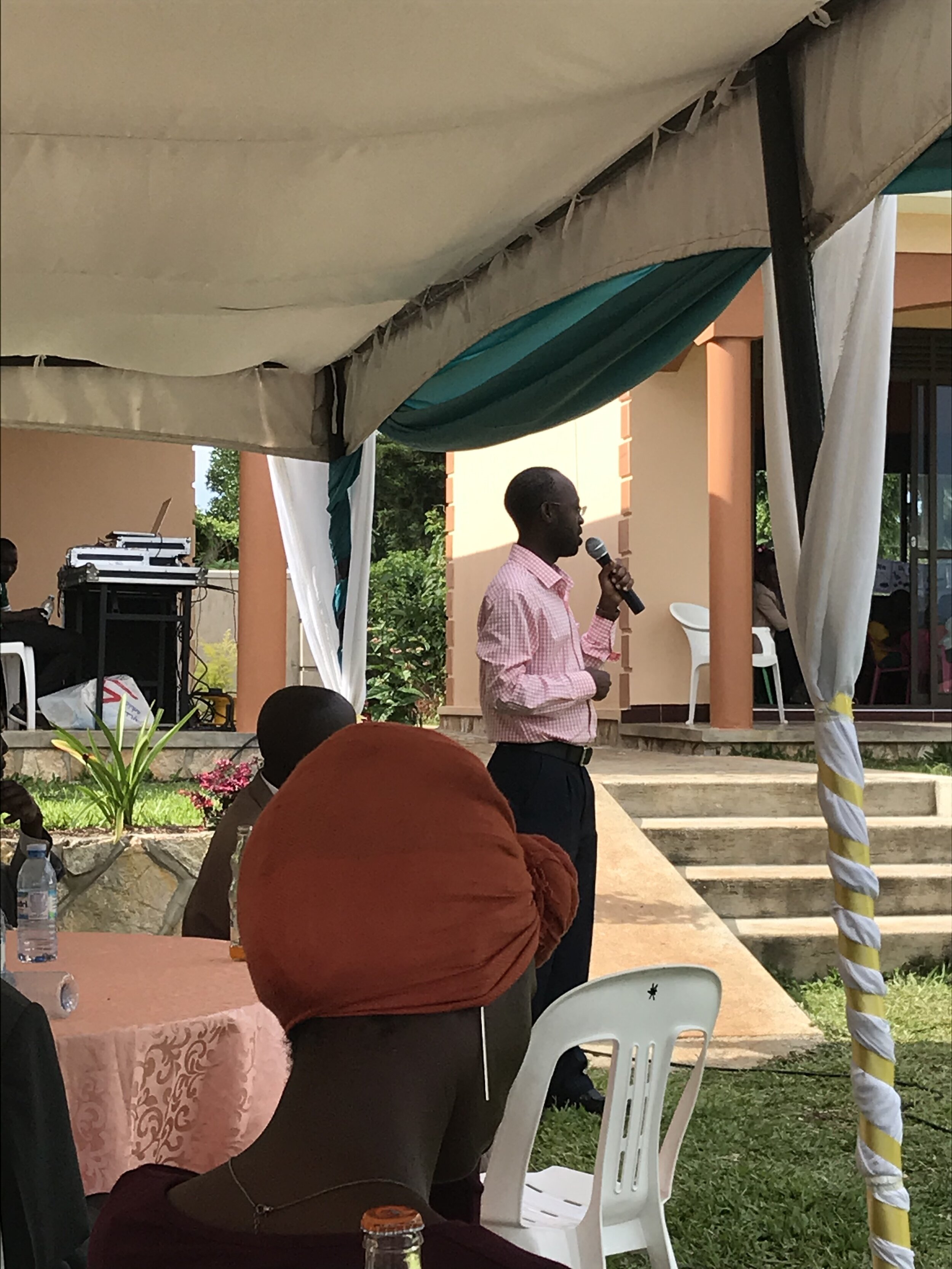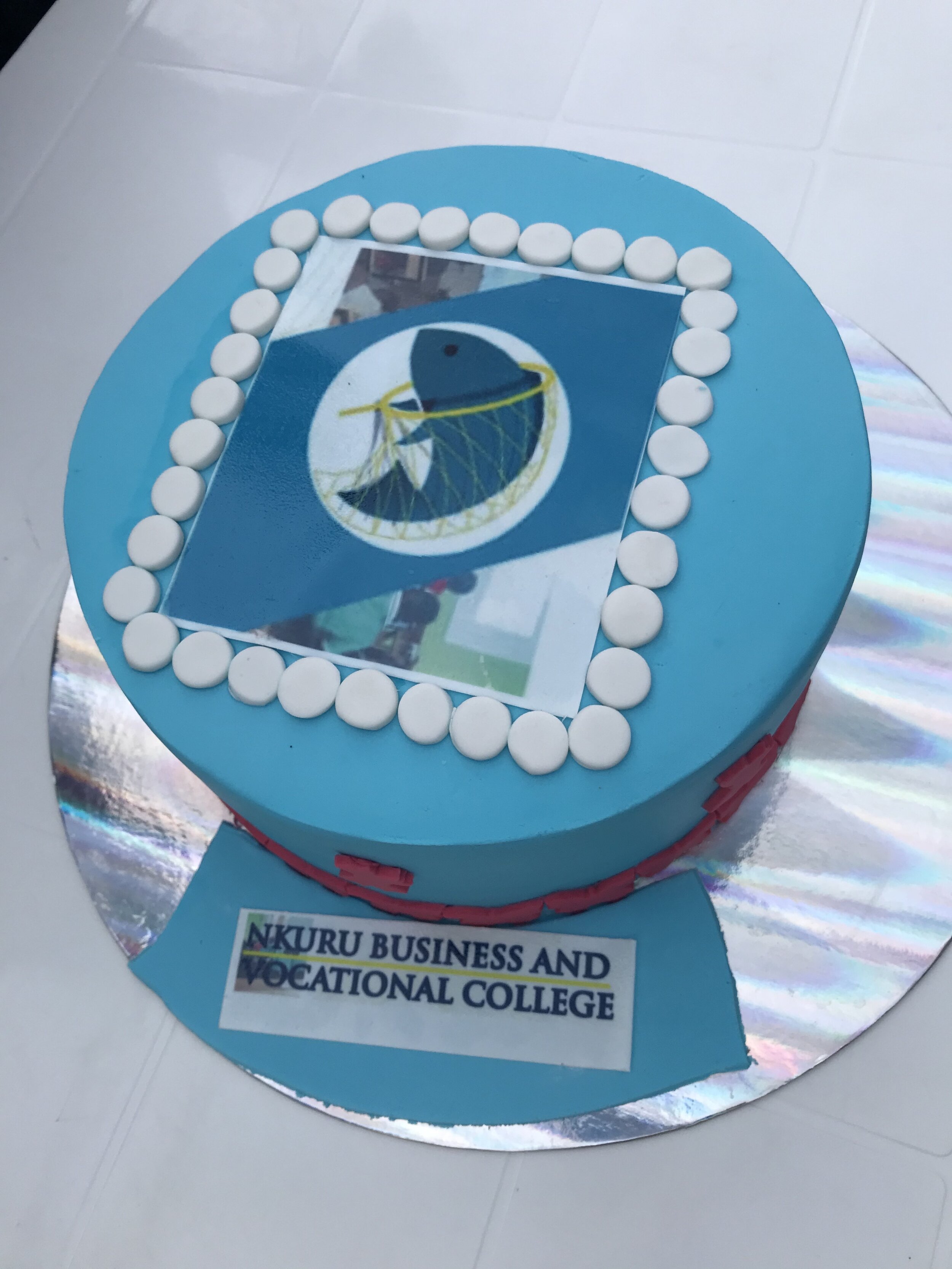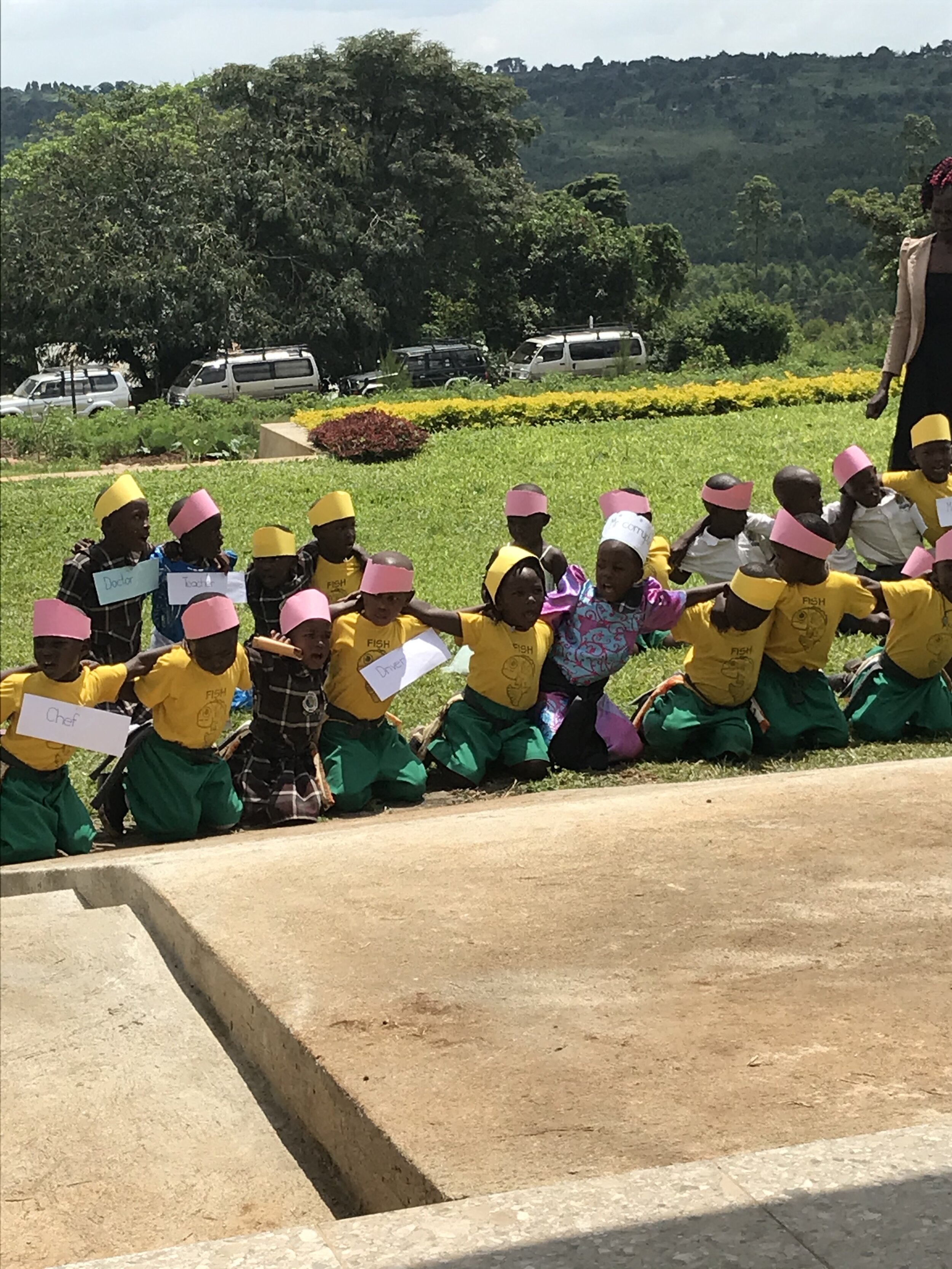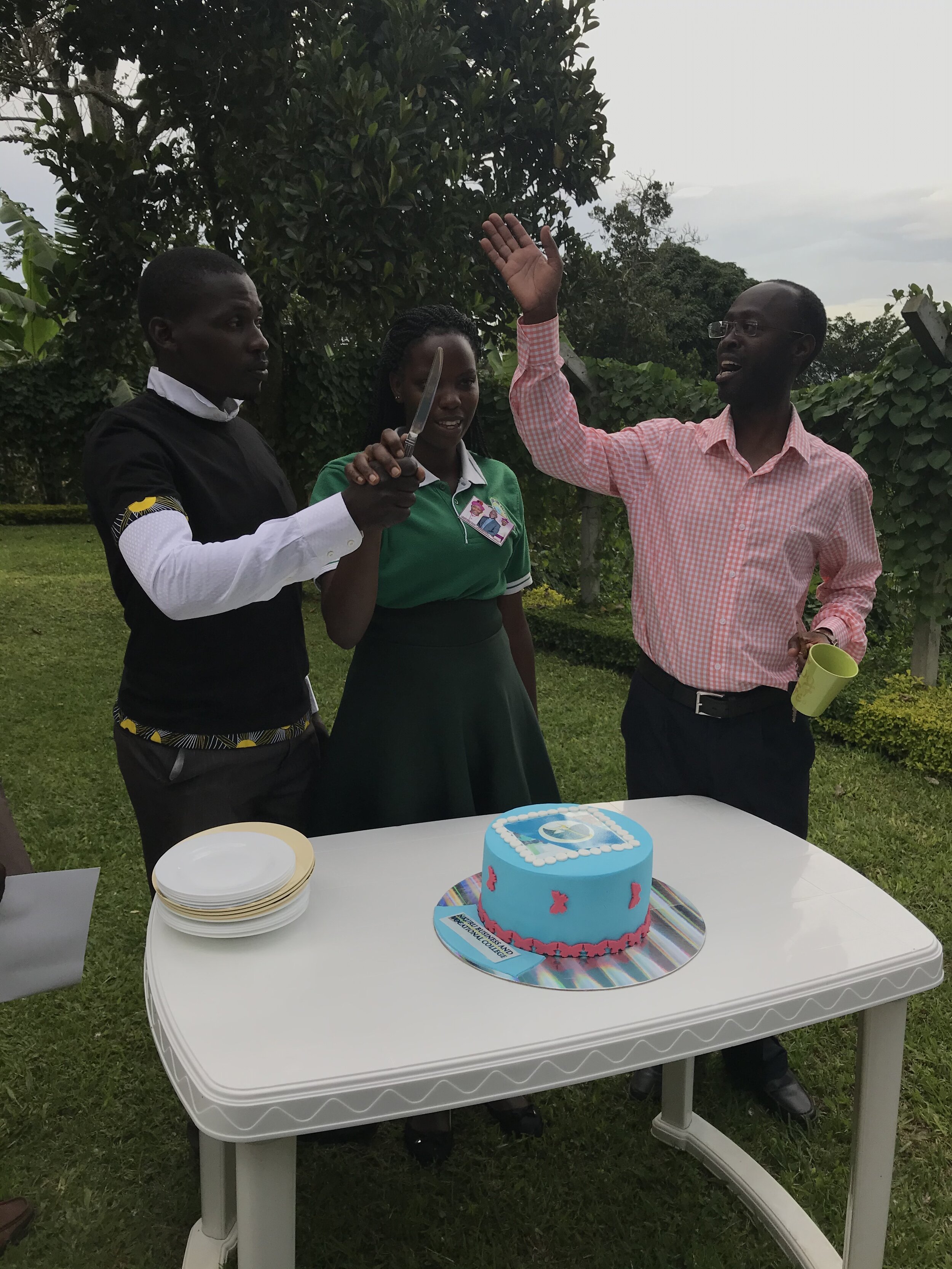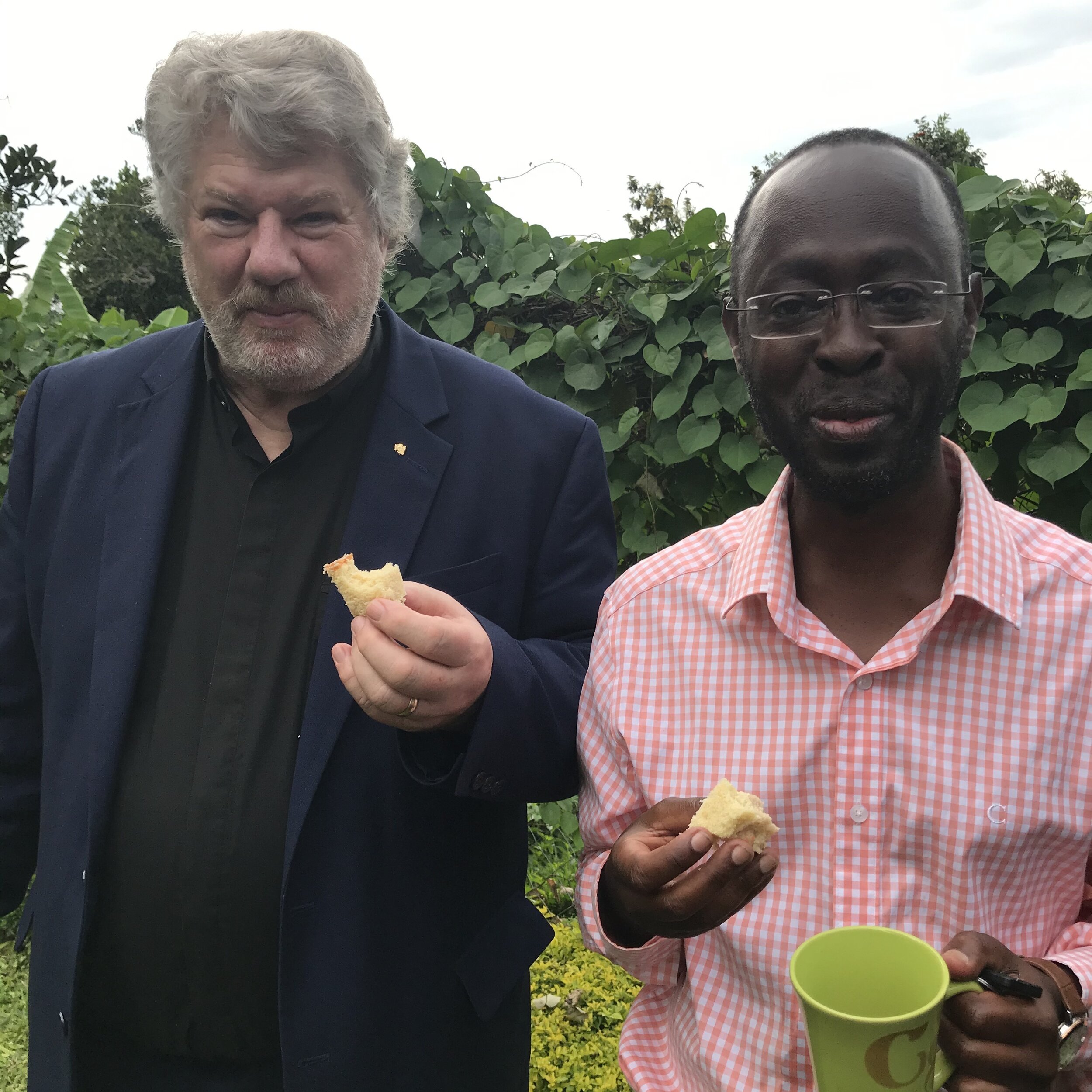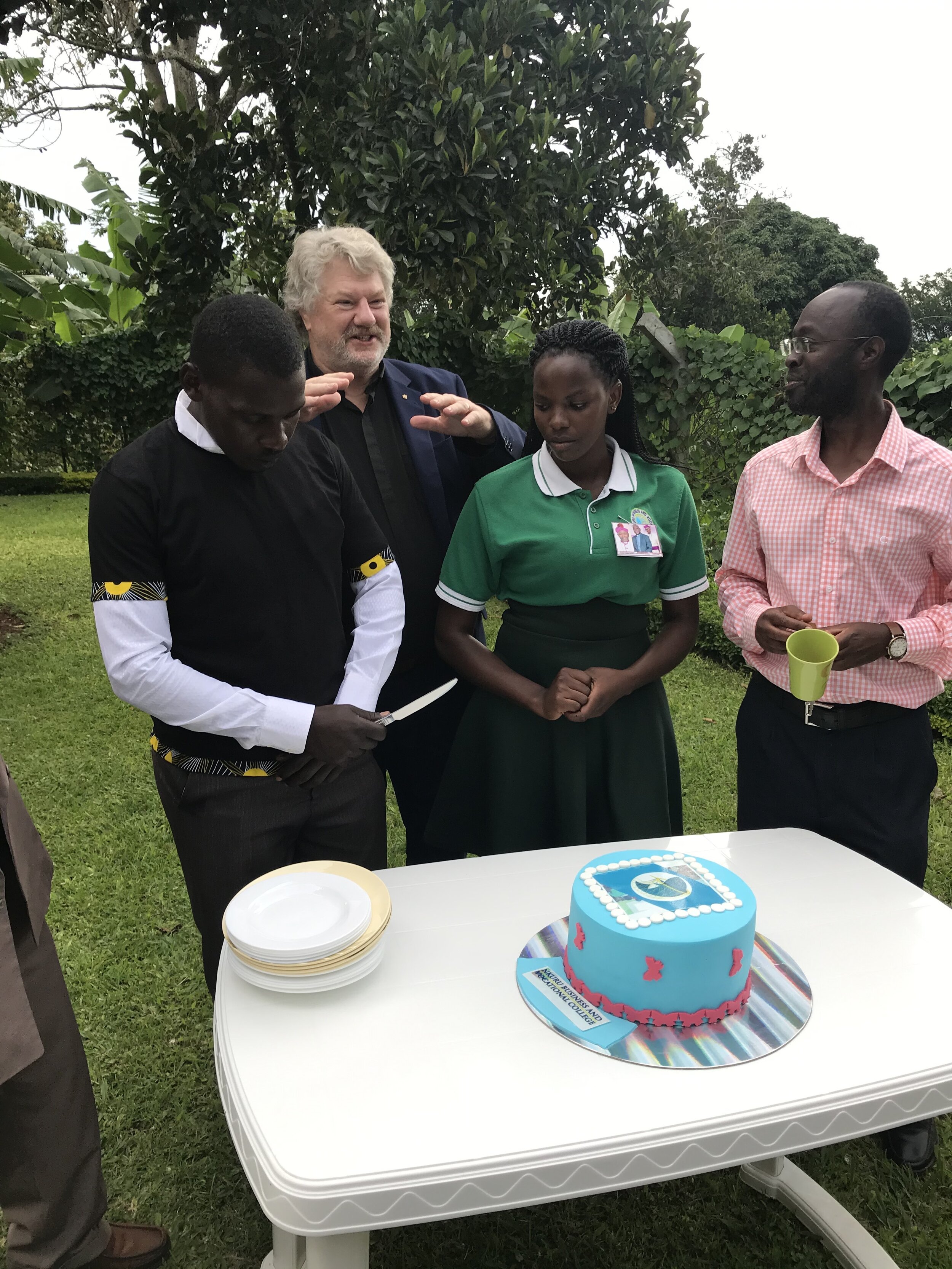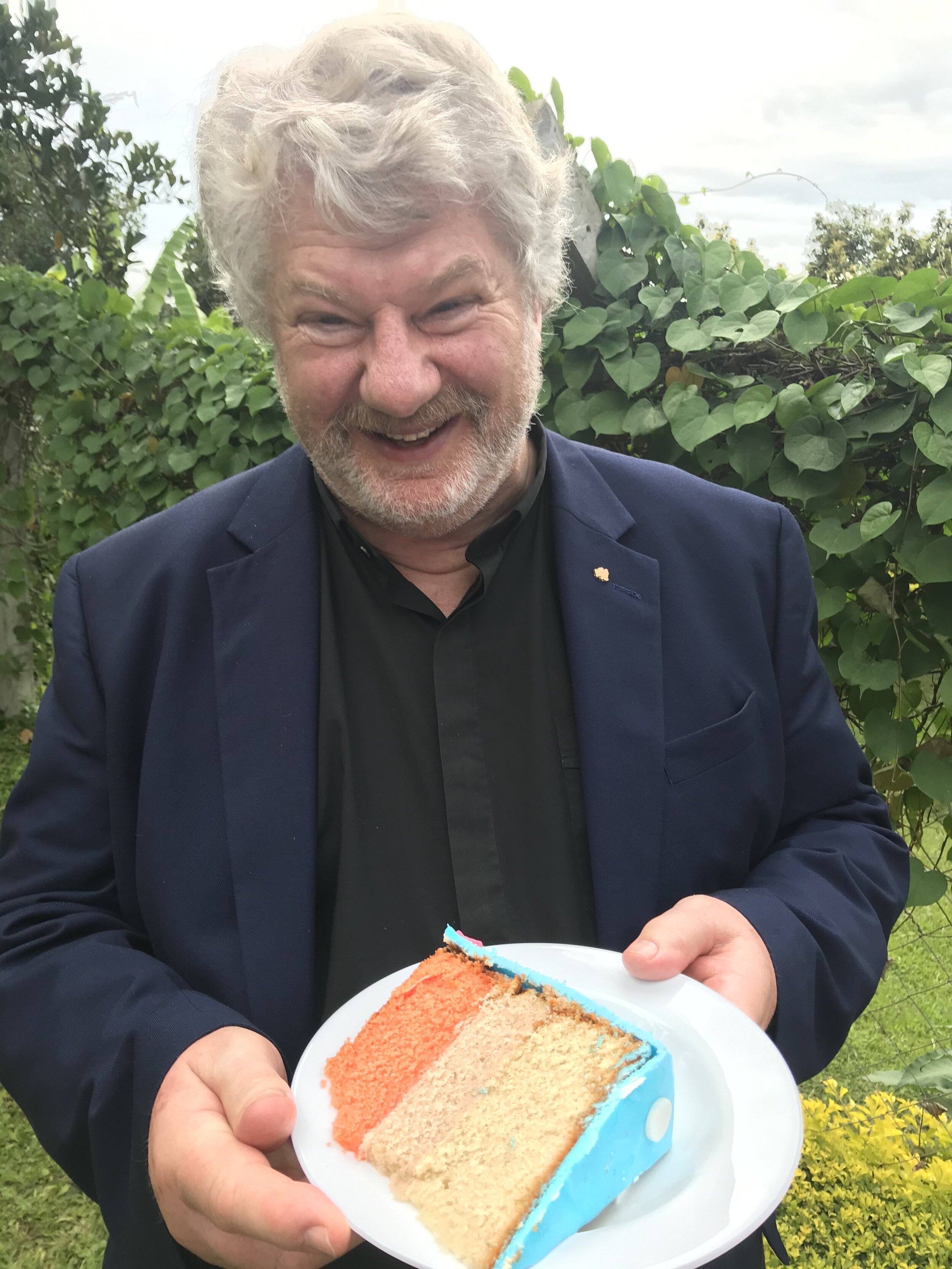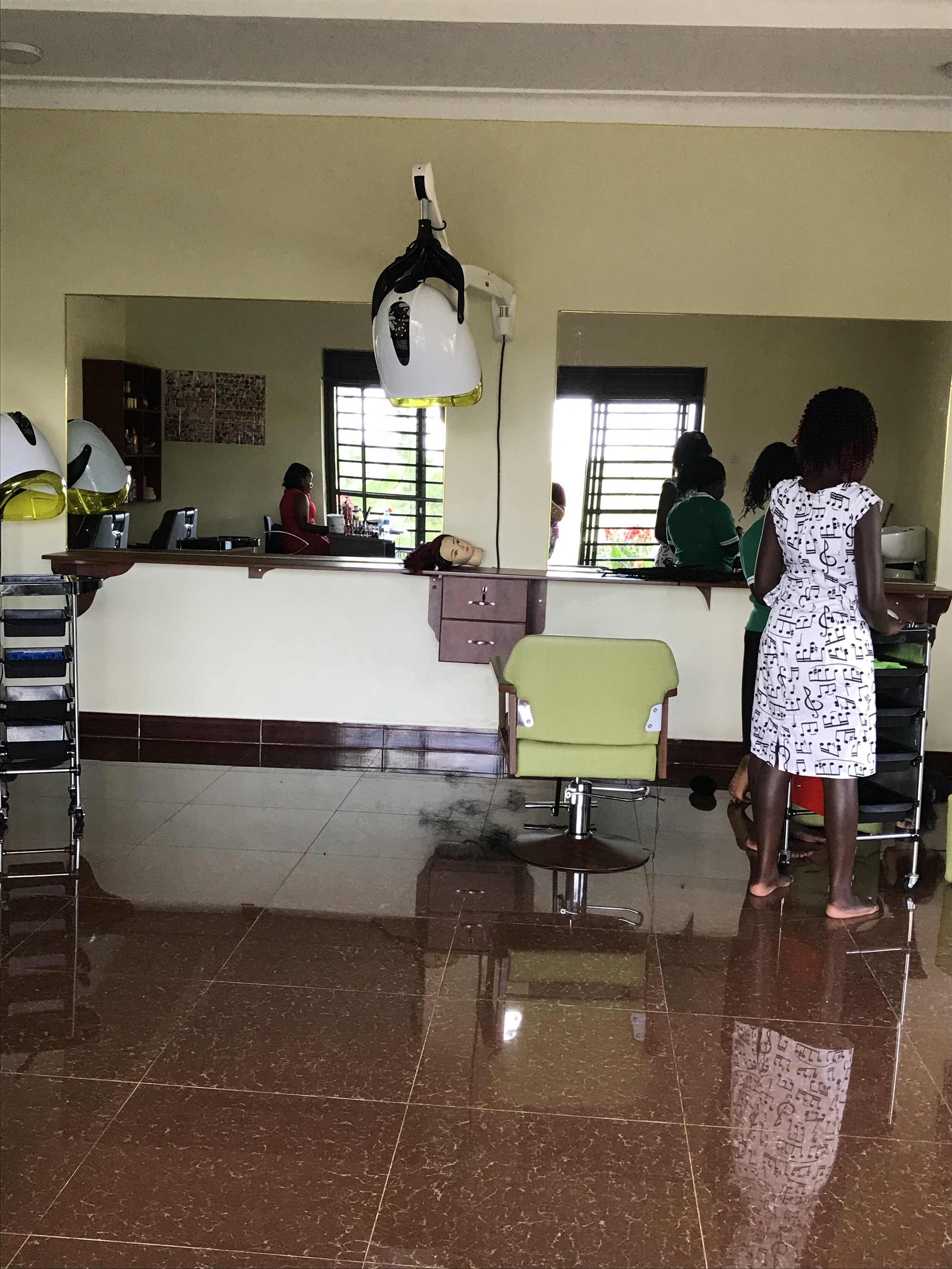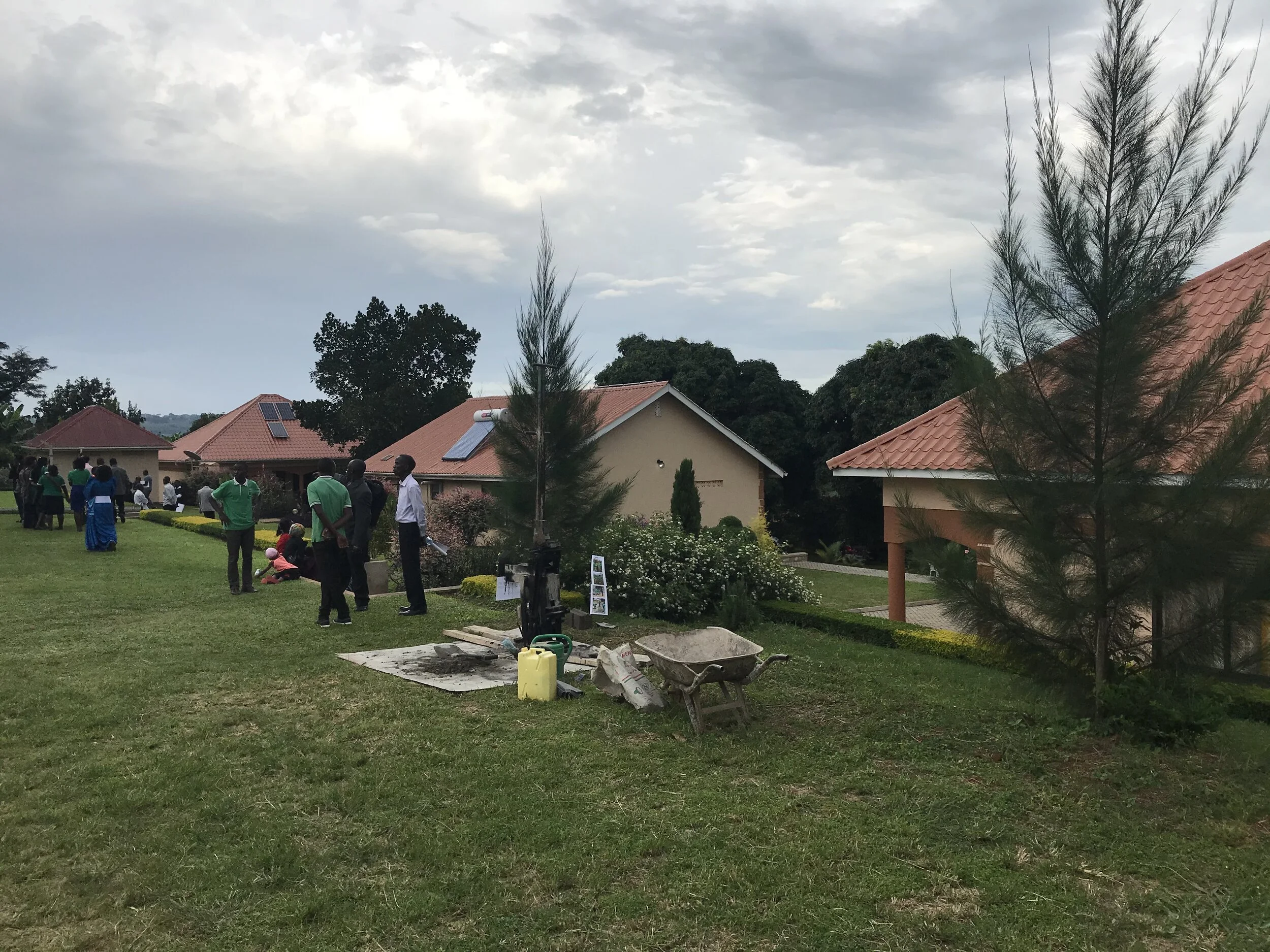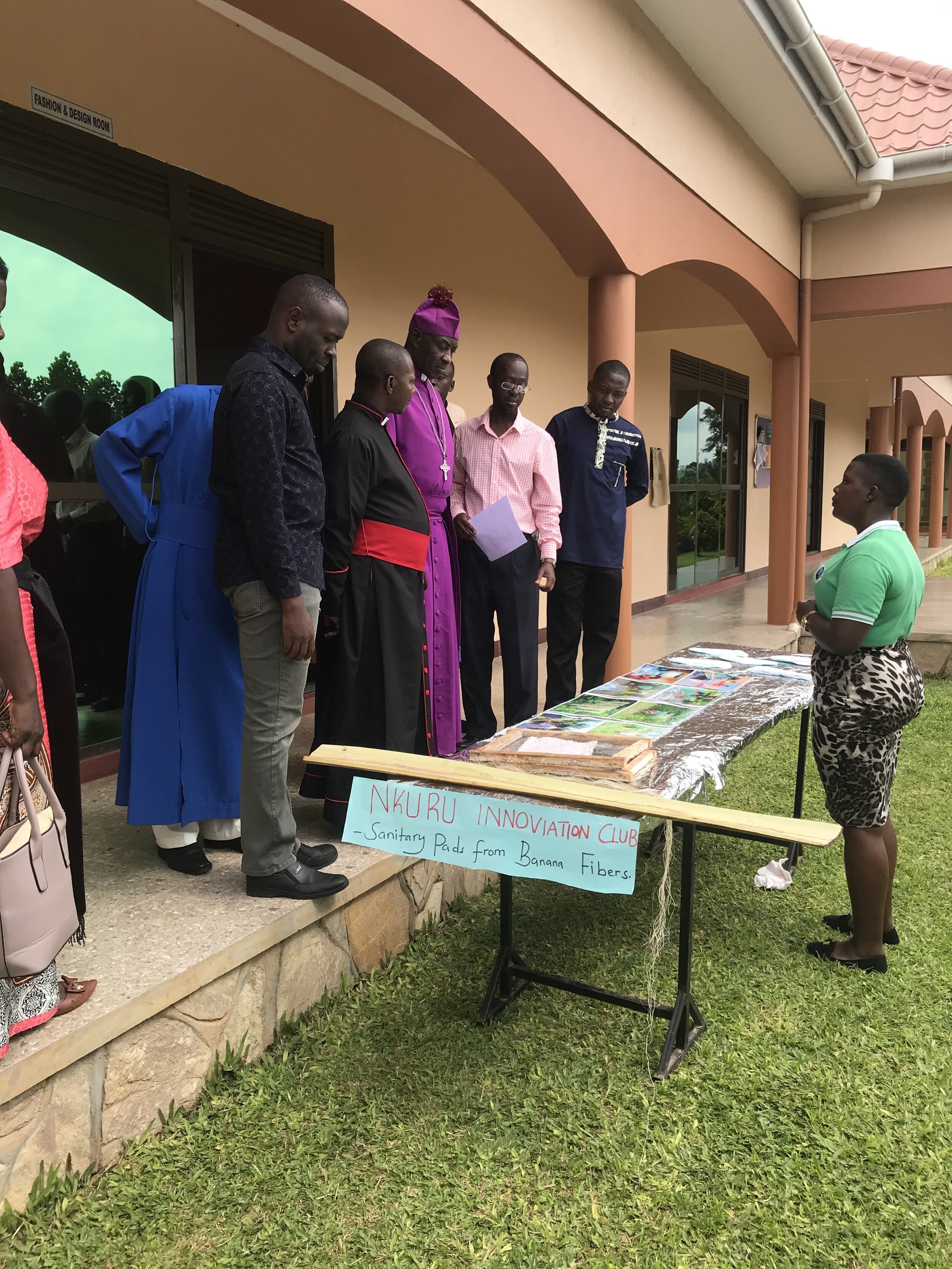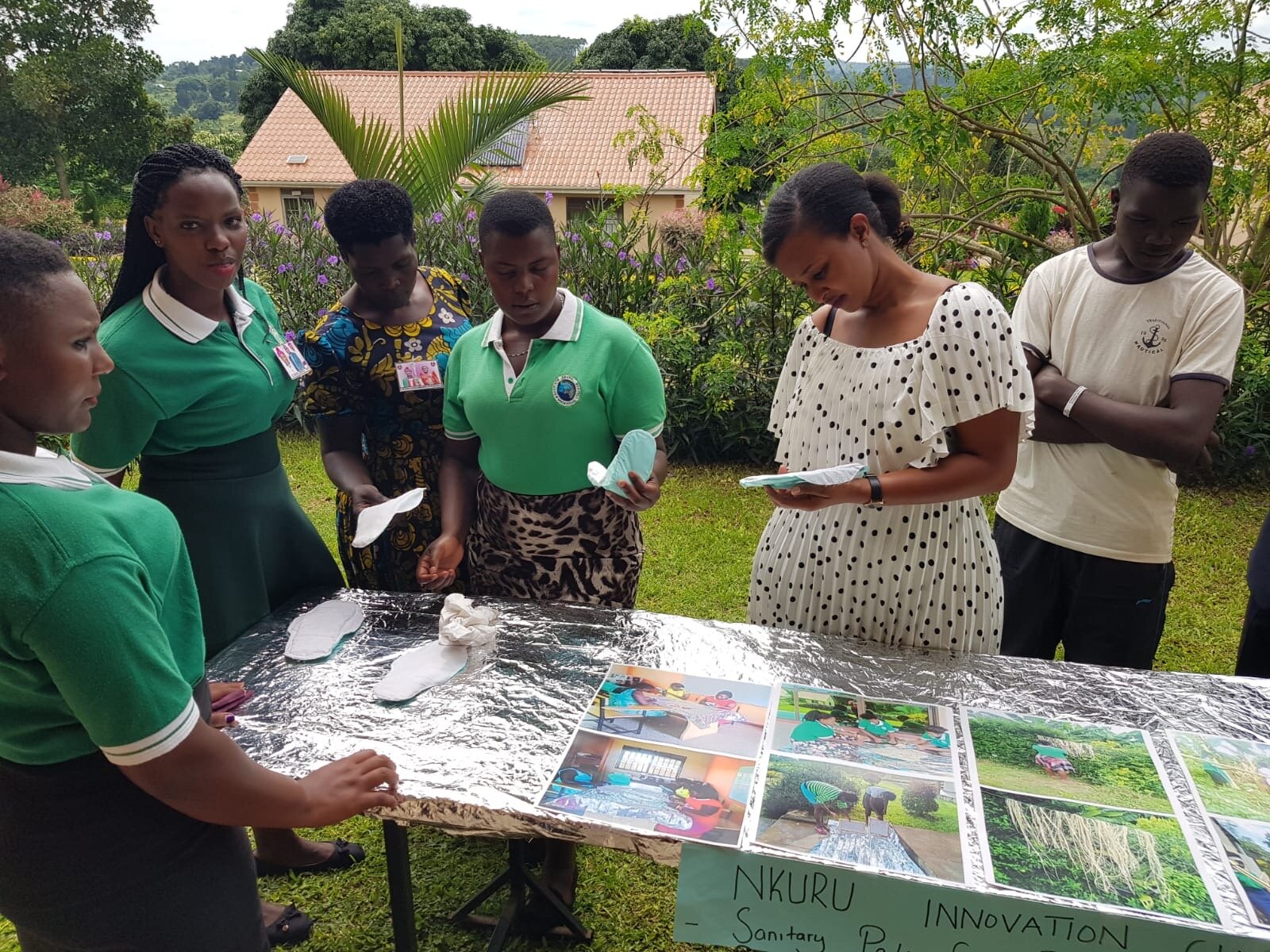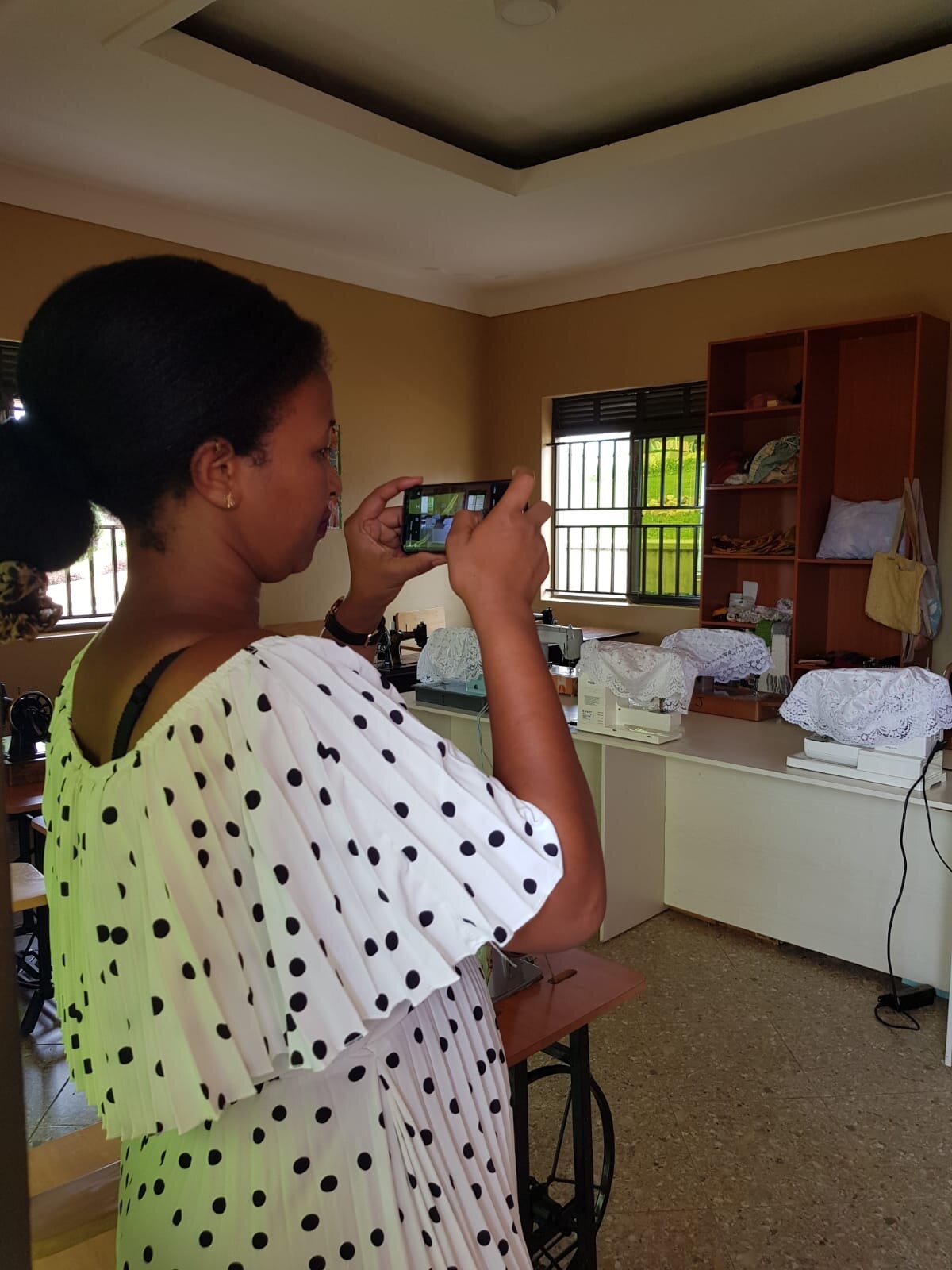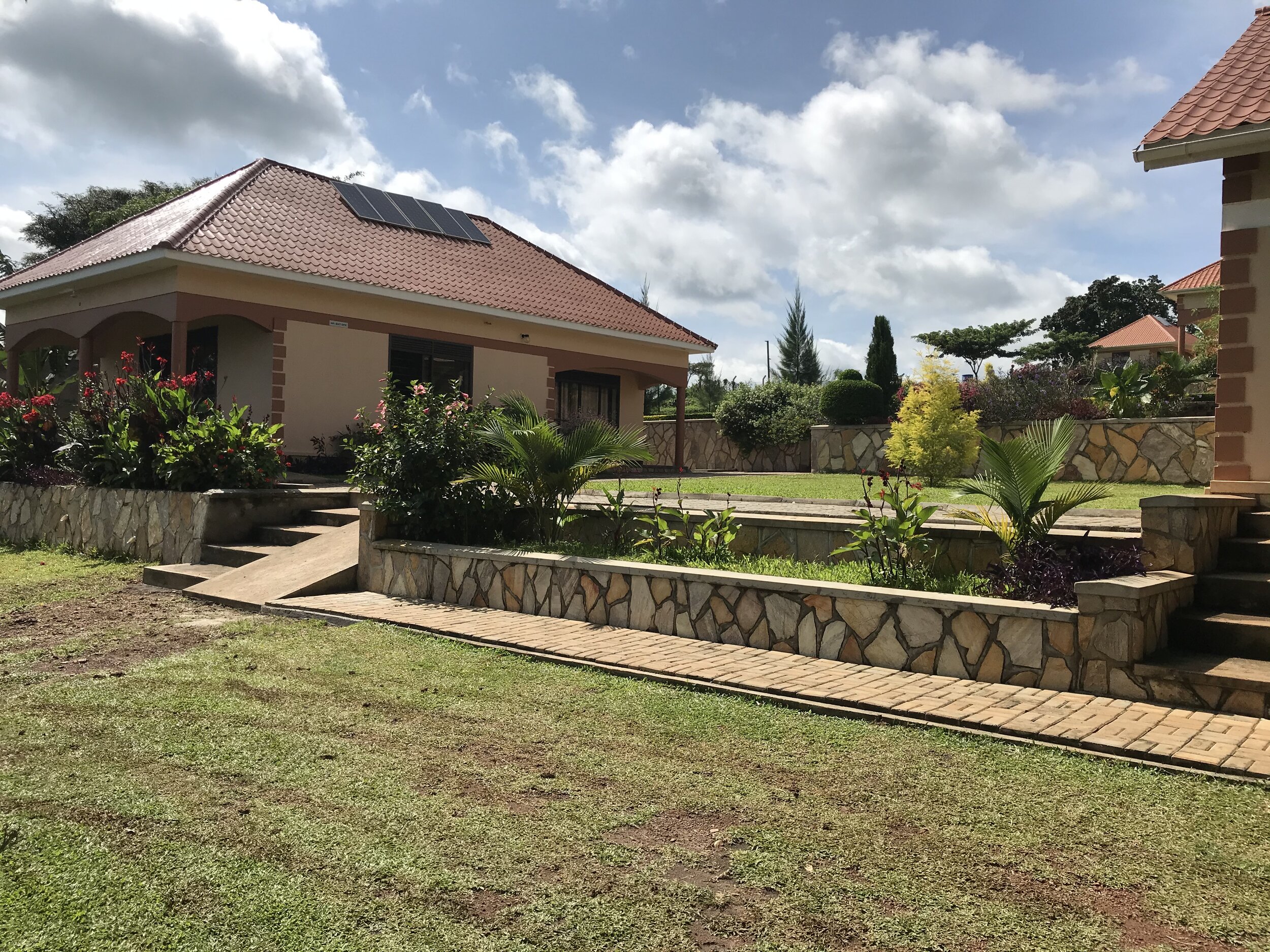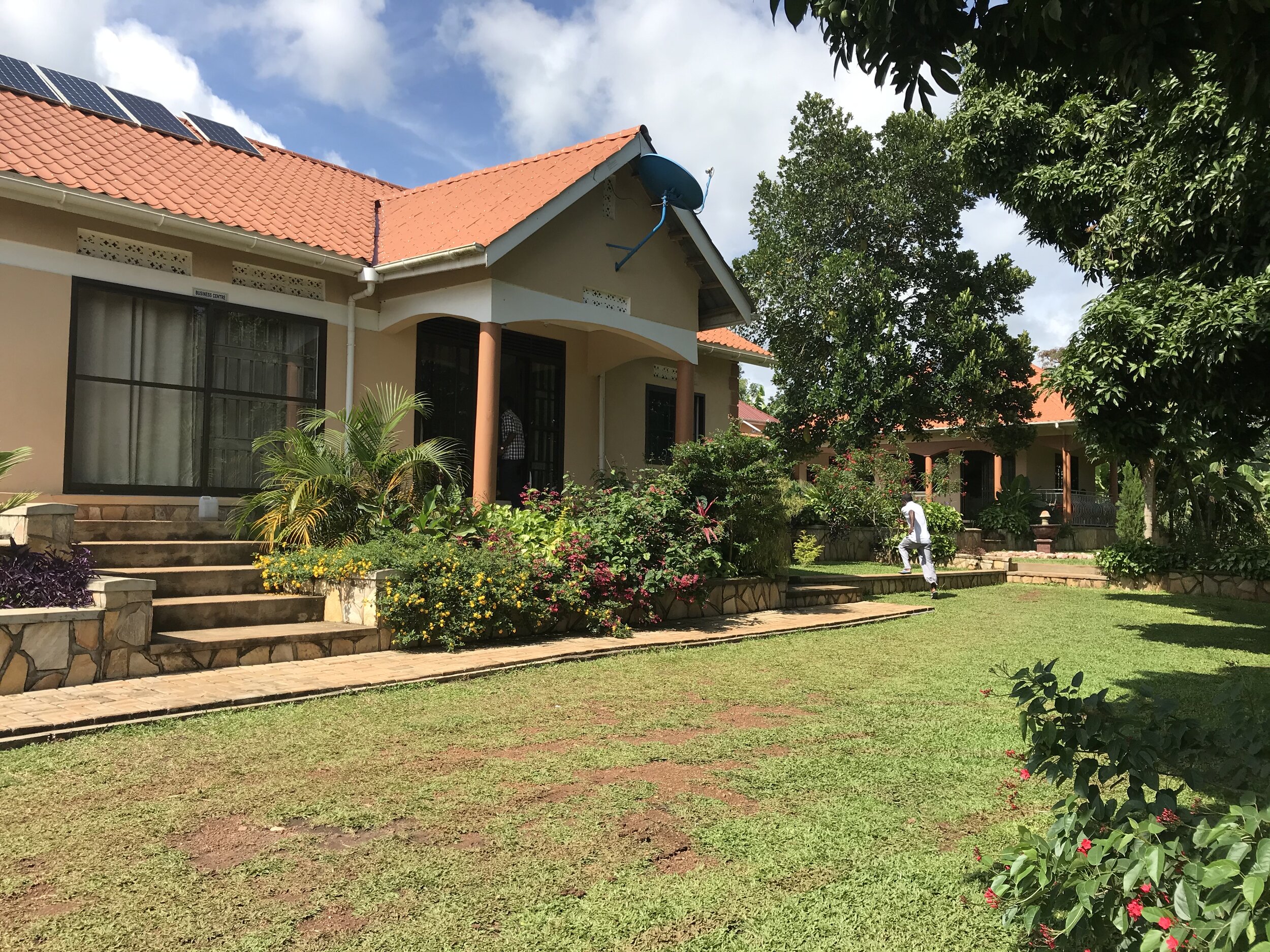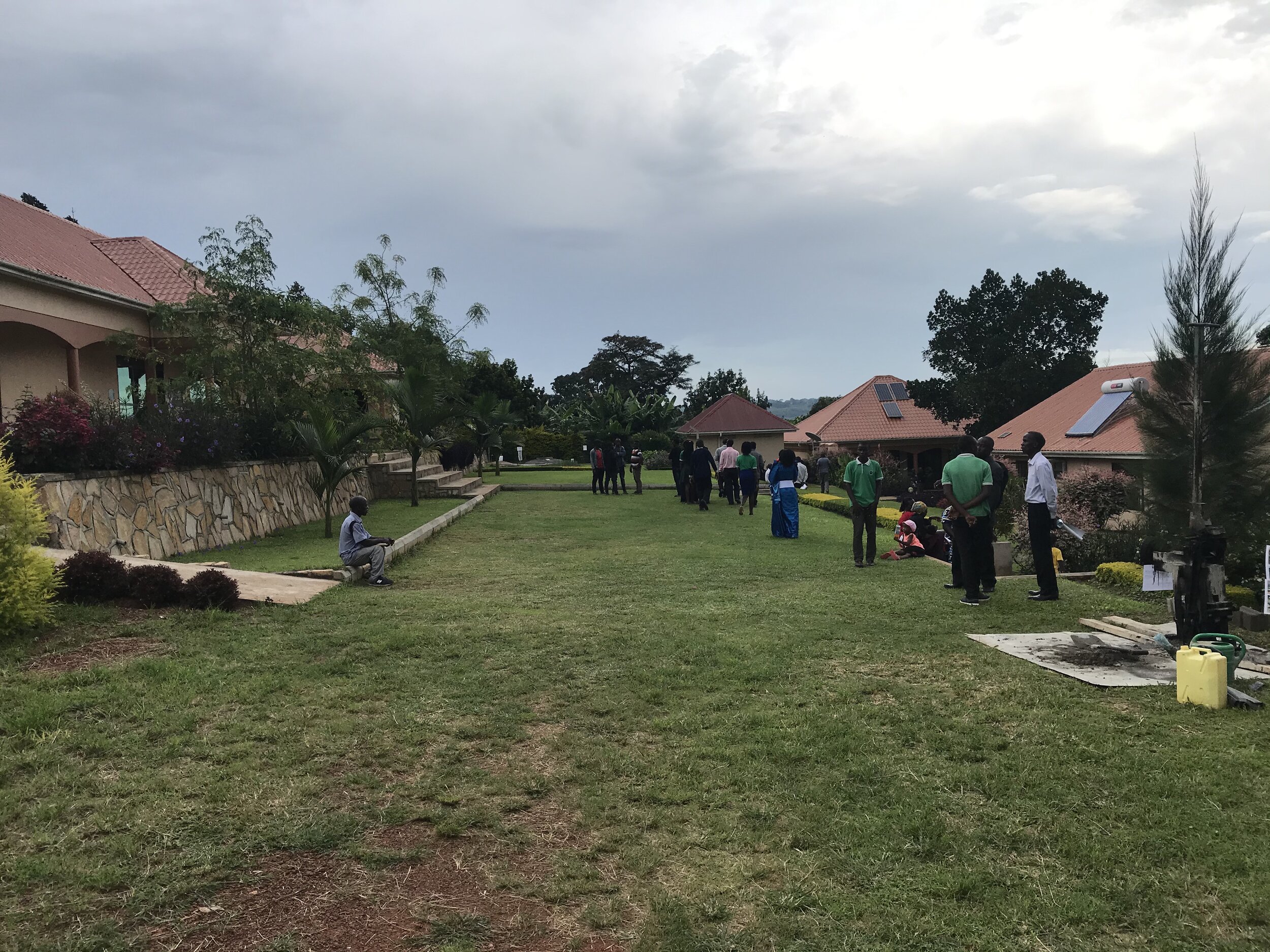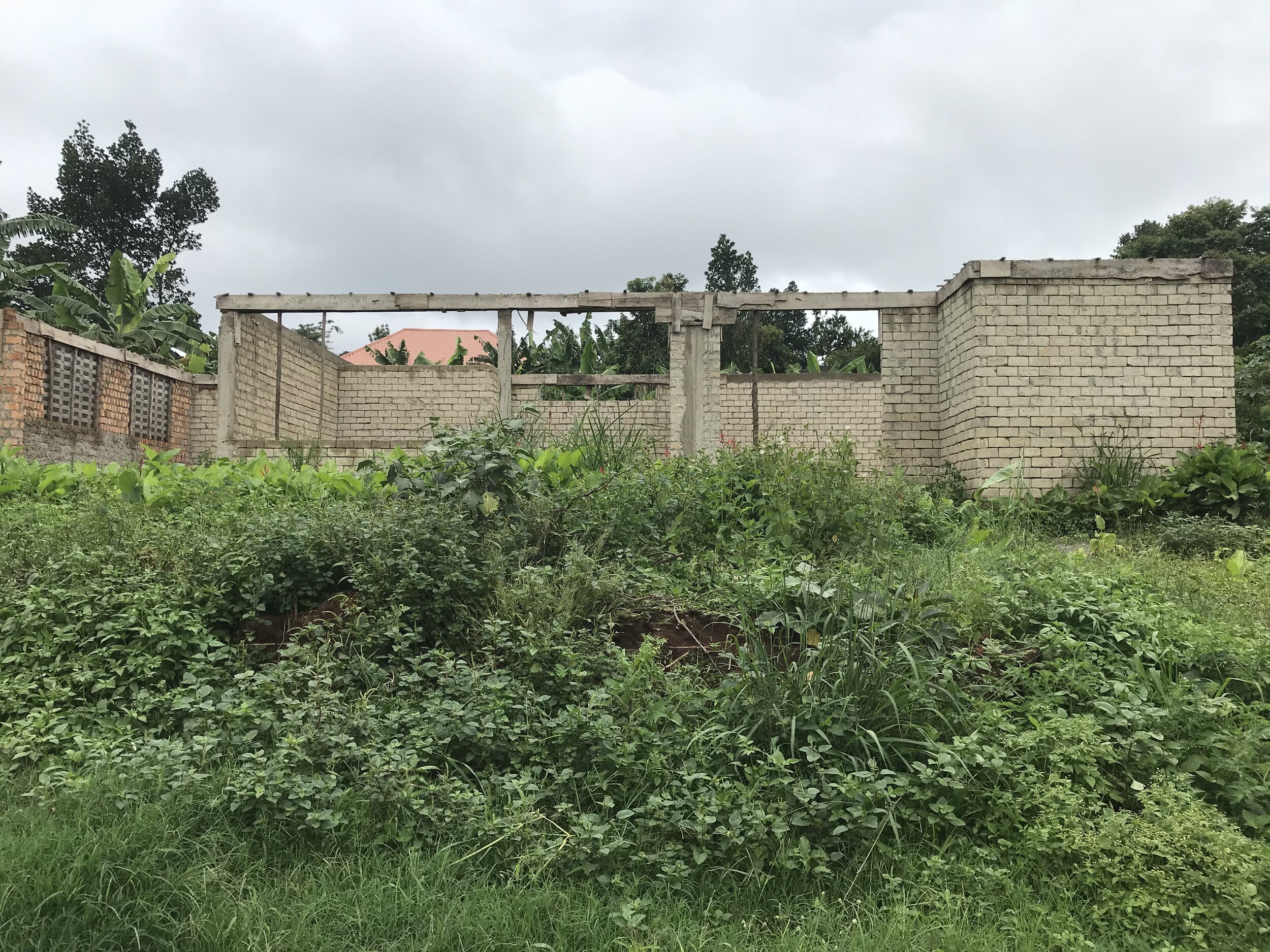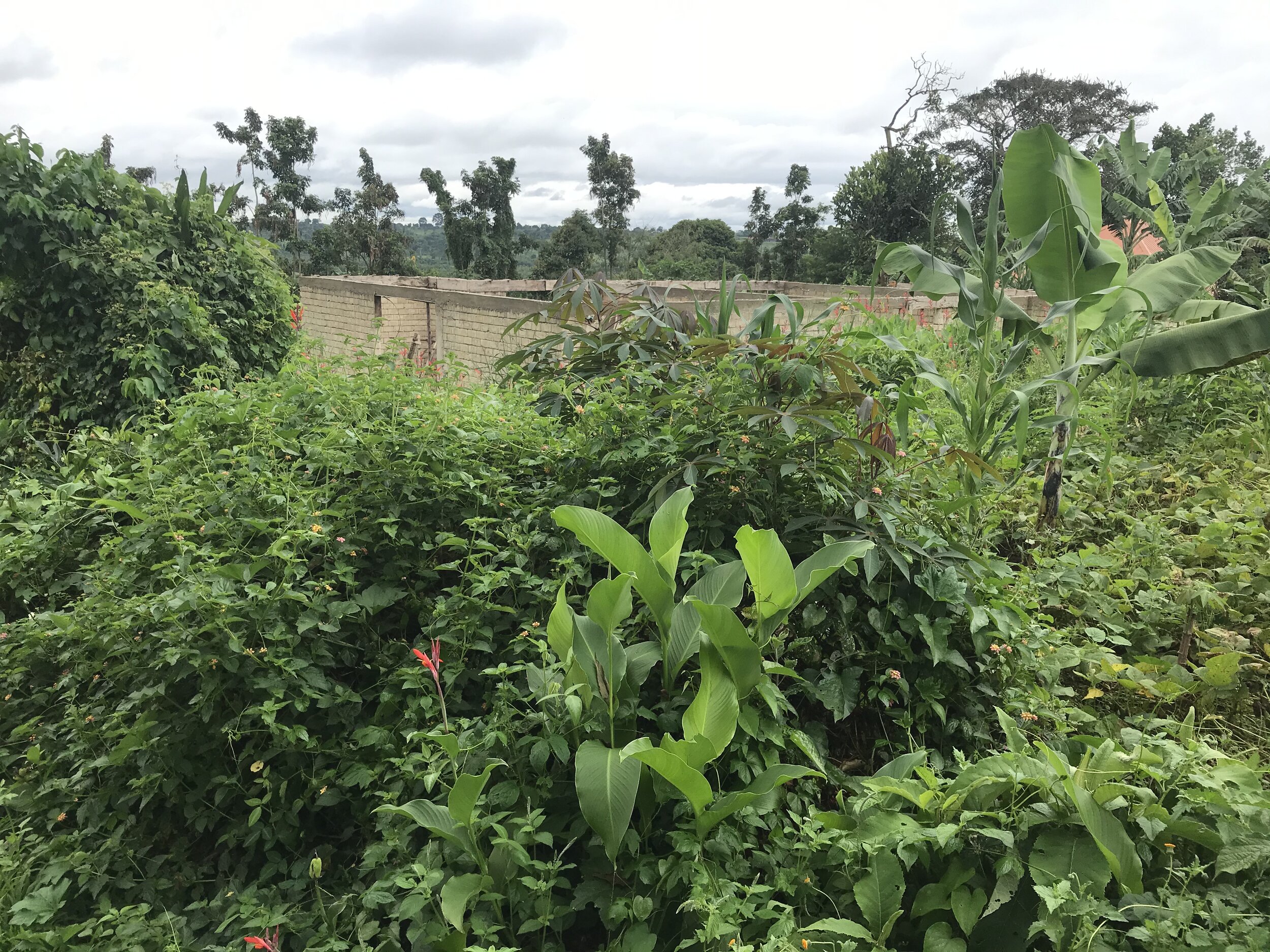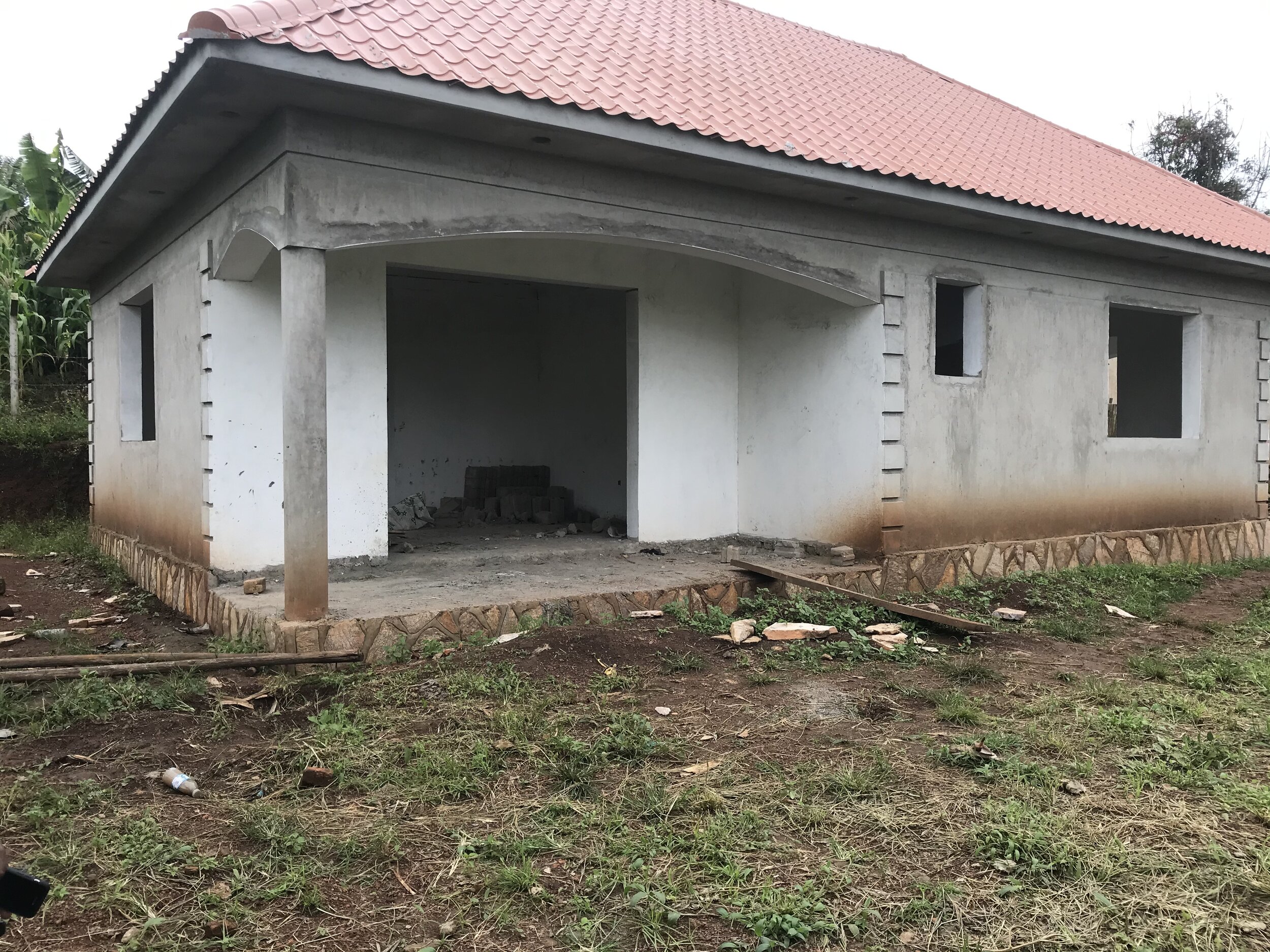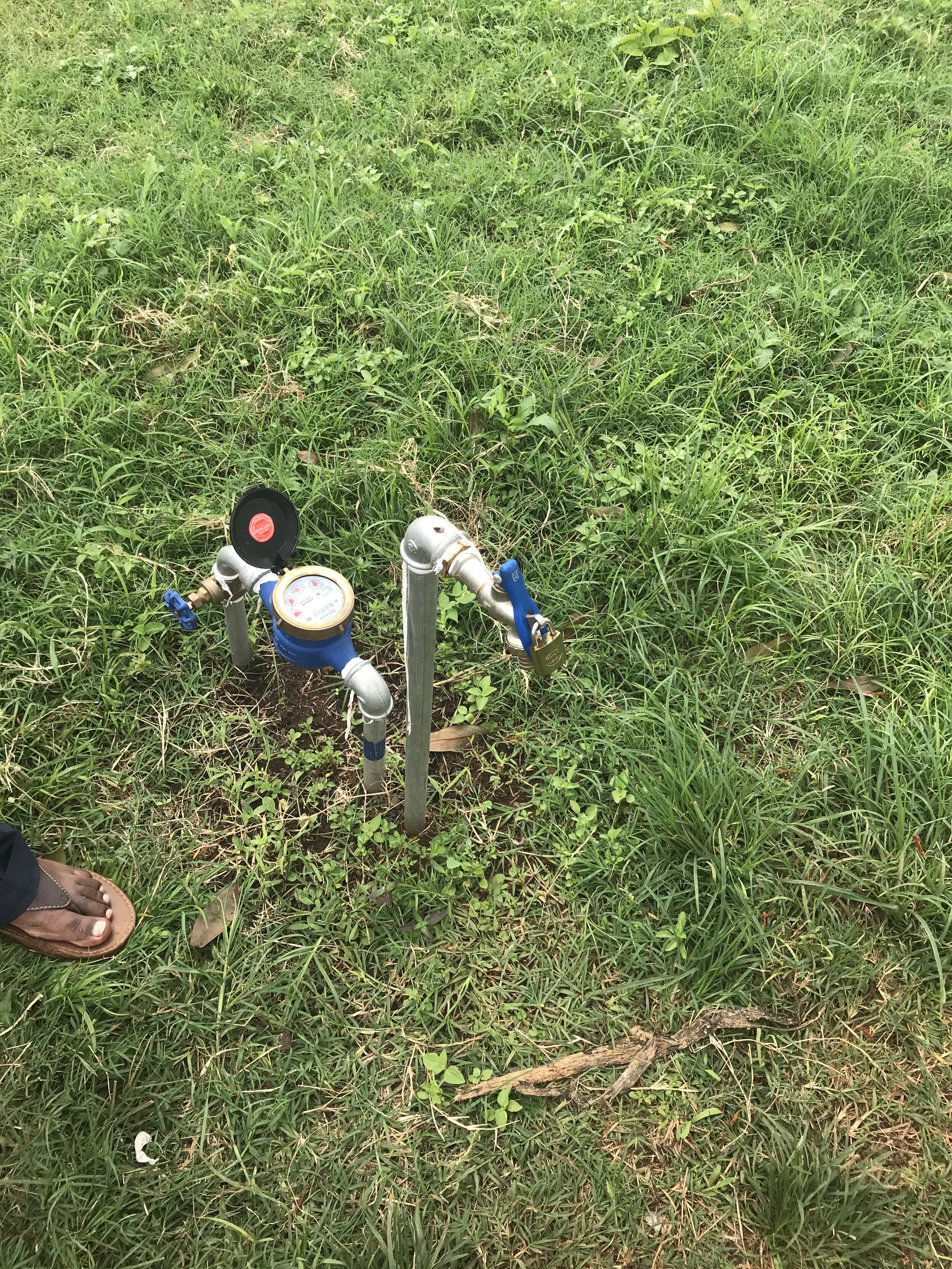The Opening
The opening ceremony
On 19th November 2019 many people gathered from the local community and beyond to join in the opening celebrations .
Around 70% young people in Uganda do not have access to education beyond primary school. The College has been designed as a local community model to provide vocational skills which will enable young people to gain skills to lift them out of poverty by providing them with skills for work.
The College has had a huge impact in the development stages and has attracted considerable attention. It has an innovative model for matching teaching and learning using ‘Whole Brain Approach’ to identify appropriate courses and ‘Whole Person Approach’ to provide readiness for work and life.
Such has been the interest that the Archbishop elect of Uganda was pleased to officially ‘Open’ the College, joined by The Revd Tim Hall, Chaplain of St David’s College in North Wales.
It was such a privilege to be able to share this time with 3 past St David’s College pupils, John Njendahayo (Nkuru-Nziza Director), Zoe Calder (Head of Secondary at Acorn International School, Kampala) and Julius Muyombya (Business Advisory Associate, BDO, Uganda).
It is always a challenge to get family together but on this special occasion it was wonderful to be able to gather together John and Sophie’s family. The story is quite remarkable and stretches back into the 1950’s. In 1992, St David’s College was drawn into it connecting this tea plantation via the father of a past pupil to John’s father and mother. On that same tea plantation village today we are all able to join together to celebrate the success that comes through faithful service and a deep family commitment to their community.
Travelling down together
The day was marked by speeches, performances, prayer, worship songs and cake.
During the day guests were able to take a tour of the College and see the amazing work going on across the Departments: Nursery School, Textile Design, Computer Aided Design, Computer Technology, Secretarial and Business Studies, Building and Construction including the sustainable technologies (ISB bricks, biodigesters, rainwater harvesting, water supply technology), Catering, Farming and Horticulture, Hair and Beauty etc.
The College campus is stunningly beautiful, with high quality living conditions for the students.
The impact of this development is so wide ranging – a water supply for the village that they have never had, a nursery school in safe and beautiful buildings, skills for life to provide an income and livelihood for so many young people, a radical new educational concept via matching teaching and learning and a ‘whole brain’ and ‘whole person’ approach’, the Church of Uganda brought together in a new way to influence their learning and ministry and development thinking, innovative technologies to steward the environment in sustainable and highly productive ways etc etc. The new developments seen here are the car and boda boda mechanics workshops, a new dormitory block and one of the metered water taps for the village.
The impact on the Church of Uganda continued this week on Thursday 5th December when the Archbishop elect brought his senior team to the Vocational Training College, for fellowship and discussions on the ‘Whole brain Approach’ to teaching and pastoral care and looking at the innovative ways the VTC provides education on sustainable stewardship of the environment and the range of skills taught at the College. The church is acutely aware that 70% of all children in Uganda do not have access to Secondary Education and beyond. This innovative local rural model of vocational skills training will have a profound impact on the overall development of Uganda in the future.


